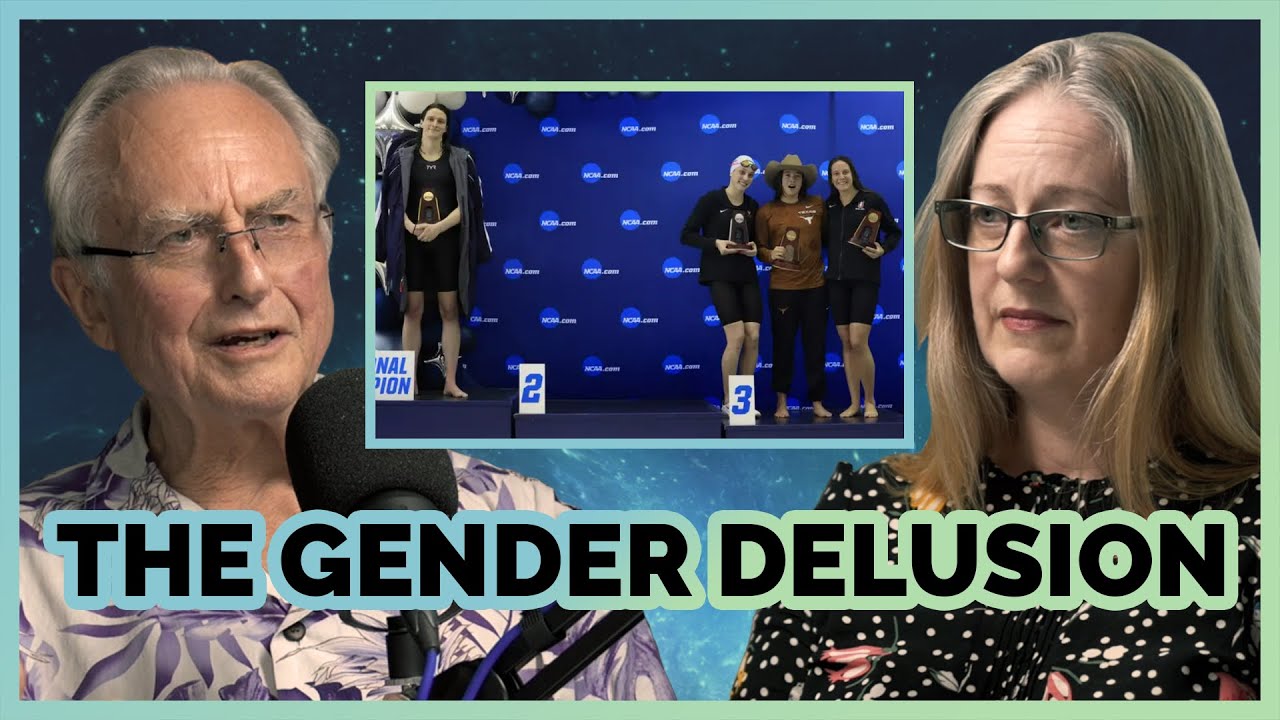Trans When Ideology Meets Reality My conversation with Helen Joyce 1080p 25fps VP9 160kbit Opus
Summary
TLDREste video presenta una conversación profunda entre el anfitrión y Helen Joyce, autora del libro 'Trans: When Ideology Meets Reality'. Joyce discute la realidad de los sexos biológicos y cómo la ideología transgénero está en conflicto con esta, afectando espacios seguros para mujeres, la participación en deportes y la protección de los derechos de los homosexuales. A través de historias personales y análisis, el video explora temas como la identidad de género, los derechos de las mujeres y la libertad de expresión, resaltando la importancia de enfrentarse a la ideología con hechos y la realidad científica.
Takeaways
- 🔍 La creencia en la realidad y la ciencia como contrapunto a la ideología trans está en el centro de la discusión.
- 📚 Helen Joyce destaca por su libro 'Trans, cuando la ideología se encuentra con la realidad', que examina críticamente la ideología trans.
- 🧪 La biología y la ciencia se presentan como fundamentales para comprender la realidad del sexo biológico, enfatizando su naturaleza binaria.
- 👥 La transición de género, especialmente en niños y adolescentes, se cuestiona por sus implicaciones permanentes y la presión social asociada.
- 🏳️🌈 La distorsión del lenguaje y la identidad de género es un tema recurrente, cuestionando la afirmación de género basada únicamente en la autodeclaración.
- 📖 Otros libros recomendados incluyen 'Daño Irreversible' de Abigail Shrier y 'Material Girls' de Kathleen Stock, que exploran aspectos similares de la ideología de género.
- 🤔 El cuestionamiento y la búsqueda de respuestas sobre las causas y efectos de la ideología trans resaltan la complejidad del tema.
- ⚖️ La discusión sobre espacios segregados por sexo, deportes y derechos de las mujeres subraya la tensión entre los derechos trans y los derechos de las mujeres.
- 🎓 La experiencia de Maya Forstater, quien perdió su trabajo por expresar creencias sobre el sexo biológico, ejemplifica las consecuencias sociales de cuestionar la ideología trans.
- 🛡️ 'Sex Matters', la organización cofundada por Maya Forstater, lucha por el reconocimiento de la realidad del sexo y contra la imposición de la ideología de género en la sociedad.
Q & A
¿Qué libro escribió Helen Joyce que se menciona en la conversación?
-Helen Joyce escribió el libro 'Trans, when ideology meets reality'.
¿Cuál es la profesión actual de Helen Joyce mencionada en el diálogo?
-Helen Joyce trabaja para una organización de defensa llamada Sex Matters.
¿Qué tema central aborda el libro de Helen Joyce?
-El libro aborda el conflicto entre la ideología de género y la realidad biológica del sexo.
¿Cuál es la postura de Helen Joyce sobre la realidad del sexo?
-Helen Joyce sostiene que el sexo es una categoría binaria y clara, basada en la biología y no sujeta a la autoidentificación personal.
¿Qué argumento utiliza Helen Joyce para explicar la diferencia entre sexo y género?
-Helen Joyce argumenta que el sexo está determinado biológicamente y es binario, mientras que el género se refiere a roles y expresiones culturales, que pueden variar y ser más fluidos.
¿Cuál es la crítica de Helen Joyce hacia la autoidentificación de género?
-Critica que la autoidentificación de género ignora las realidades biológicas del sexo y puede tener consecuencias negativas en espacios segregados por sexo, como los deportes y baños públicos.
¿Qué caso específico se menciona en el diálogo que ilustra la lucha por el reconocimiento del sexo biológico?
-Se menciona el caso de Maya Forstater, quien perdió su trabajo por expresar creencias sobre la inmutabilidad del sexo biológico y luego ganó un caso de apelación que estableció un precedente legal.
¿Qué efecto tiene la política de identidad de género en los niños según la discusión?
-Según la discusión, la política de identidad de género puede confundir a los niños sobre su sexo y género, llevándolos a decisiones prematuras sobre su identidad que pueden incluir intervenciones médicas irreversibles.
¿Cómo describe Helen Joyce el impacto de las políticas de identidad de género en los espacios femeninos?
-Describe que estas políticas están erosionando espacios seguros diseñados para mujeres, como baños y vestuarios, al permitir el acceso basado en la identidad de género en lugar del sexo biológico.
¿Cuál es la visión de Helen Joyce sobre la solución al conflicto entre la ideología de género y la realidad del sexo?
-Helen Joyce aboga por un enfoque basado en la realidad biológica y la protección de espacios seguros para mujeres y niñas, manteniendo el respeto y la dignidad para todas las personas, independientemente de su identidad de género.
Outlines

Esta sección está disponible solo para usuarios con suscripción. Por favor, mejora tu plan para acceder a esta parte.
Mejorar ahoraMindmap

Esta sección está disponible solo para usuarios con suscripción. Por favor, mejora tu plan para acceder a esta parte.
Mejorar ahoraKeywords

Esta sección está disponible solo para usuarios con suscripción. Por favor, mejora tu plan para acceder a esta parte.
Mejorar ahoraHighlights

Esta sección está disponible solo para usuarios con suscripción. Por favor, mejora tu plan para acceder a esta parte.
Mejorar ahoraTranscripts

Esta sección está disponible solo para usuarios con suscripción. Por favor, mejora tu plan para acceder a esta parte.
Mejorar ahoraVer Más Videos Relacionados

"Trans: When Ideology Meets Reality" - My conversation with Helen Joyce

Cómo Crear Muchas Empresas Exitosas | Daniella Moscarella - Podcast MPF

O cristo cigano, de Sophia de Mello Breyner Andresen | RESENHA

🐢📙 John Green y yo somos felices Mil Veces Hasta Siempre 📙🐢

Dia das Mães | O amor tem sempre um plano | O Boticário

la tesis y los argumentos
5.0 / 5 (0 votes)